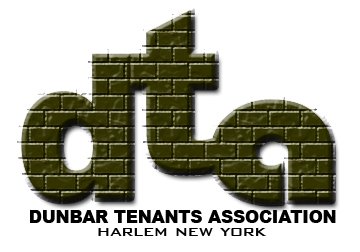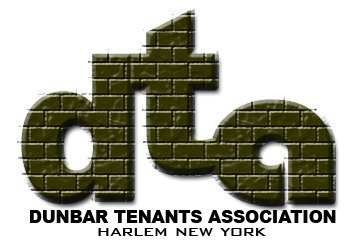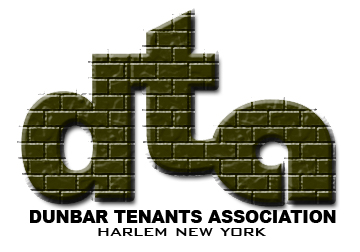by TALISE D. MOORER Amsterdam News Staff
The reason is unclear as to why Assemblyman Adriano Espaillat (D), who is not an official member of the New York State Assembly’s Housing Committee, attempted to chair a recent hearing on the grounds of Columbia Presbyterian Hospital—an area landlord with its own problems, also dubbed by watchdogs as notorious for displacing longtime Harlem residents—and not on friendlier turf.Of the many tenants and activists present at the lively meeting, some applauded the assemblyman’s vying for constituent affection.
Others are somewhat suspicious. What ’s pressing, however, is that tenants throughout the village of Harlem, including Board 12, Espaillat’s representative area, claim they are being legally thrashed and abused by practices of giant landlords in relentless pursuit of greater profits.Tenants, community activists and elected officials agree that the Pinnacle Group, who is presently under fire for allegedly deploying such practices against tenants to the tune of some thousands in Manhattan alone, is not the only real estate magnate in the till.One witness after another gave testimony before a dais that included Assemblyman Michael Benjamin; Jeffrey Dinowitz; Lisa B. Rosenthal; and later, Assemblyman Keith L.T. Wright, the senior ranking official and Chairman of the Sub-committee on Public Housing.“New York State Law is all but toothless when it comes to abusive landlords,†said Wright in a statement released to the press. “We in the State Legislature need to do much more to protect New York City’s affordable housing stock and its renters, such as strengthening DHCR enforcement powers over landlords who use fiscal might to lodge thousands of court cases against residents, using the judicial system as a tool for harassment.â€
State Senator Eric Schneiderman was among the first witnesses. He testified to a need for a more aggressive agency in the Division of Community and Housing Renewal (DHCR), the reported overseers of a landlord’s application for recovering costs of Major Capital Improvements (MCI). Schneiderman said that there is a need for audits of MCI applications; fines need to be imposed in instances of abusing the process; and that he hopes for support of Assembly Bill 5292, which legislates such changes.Dinowitz agrees. He stated, “The DHCR is not functioning to protect tenants and more times than not tenants are hit with extensive recovery costs without warning. DHCR acts quickly when processing for the landlord and moves like a tortoise for the rights of tenants.†Individually, Kenneth Rosenfeld, Director of Legal Services, Northern Manhattan Improvement Corp.; and Attorney David Hershey-Webb stressed a need to improve tenants’ right to legal representation. “We need a different set of regs when a landlord can get triple rent by getting a tenant out of an apartment and the tenant lacks the right to legal counsel.â€Recently, the Mirabal Sisters Cultural and Community Center, along with Assemblyman Wright, held another rally Against the Pinnacle Corporation.Angry tenants had reached out to Wright’s office out of disgust and frustration over documented complaints they’ve made concerning poor living conditions within their apartments, owned and operated by Joel Weiner, principal of the Pinnacle Group LLC, the real estate company that has allegedly filed an astonishing number of eviction proceedings since 2004 against tenants who live in its nearly 20,000 apartments.Reportedly, those cases were suddenly dropped within hours after at Pinnacle got wind of media inquiries.
Weiner has been under fire lately from housing advocates who say his company harasses rent-stabilized tenants, in order to vacate apartments and sharply increase rents.Weiner claims all his actions are aboveboard.Wright said, “Pinnacle tenants are still being evicted throughout Harlem at a record pace. Although Pinnacle’s public relations machine is in full gear to refute this fact, there has been no tangible change in their predatory and discriminatory business practices.â€In response to a massive outcry from community members, elected officials and housing activist groups, Wright along with Mirabal Sisters Cultural and Community Center, held a rally in front of the Pinnacle Corporation’s headquarters to again call on the developers to end their perceived continued battle against Northern Manhattan residents.Pinnacle, who owns more than 100 buildings in the Harlem area, including those formerly owned by notorious slumlord Baruch Singer, has in the previous year begun thousands of eviction proceedings in Northern Manhattan. Many of these eviction proceedings apparently have been lodged under questionable circumstances resulting in dozens of cases being summarily dismissed, and more often withdrawn by Pinnacle after intense media attention.
The sheer number of proceedings, coupled with the manner by which many of them have taken place, has sparked official investigations by both Attorney General Eliot Spitzer and Manhattan District Attorney Robert Morgenthau.“Pinnacle is quickly becoming the worst of the worst when it comes to Harlem landlords, using methods and tactics that not only speed up the process of gentrification in Harlem but specifically exclude the indigenous tenants of Harlem who in some cases have been living in these buildings for generations,†said Wright. “With co-op and condo conversions, people being pushed out of public housing, Section 8 vouchers being cut back and so called ‘urban renewal’ schemes, these actions perpetrated by Pinnacle are the absolute last thing Harlem needs. I would encourage Attorney General Spitzer and District Attorney Morgenthau to do their utmost to ensure that all laws are being followed to the fullest extent, and stop the parade of Pinnacle lawyers smiling all the way down from Harlem to 111 Center Street.â€Meanwhile, witnesses at the hearing and elected officials said they’ve accumulated great suggestions for forming new legislation to meet the needs of the people.Some activists wager that the government, with a change in control, could mark the return of home rule and the much needed repeal of the agonizing Urstadt Law, which essentially removed NYC control over housing policies.


